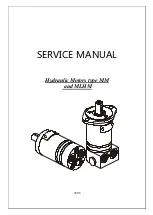
ENGINE COOLING 6B - 3
Engine coolant change procedure
1.
To change engine coolant, make sure that the engine is
cool.
WARNING:
When the coolant is heated to a high temperature, be
sure not to loosen or remove the radiator cap.
Otherwise you might get scalded by hot vapor or
boiling water. To open the radiator cap, put a piece of
thick cloth on the cap and loosen the cap slowly to
reduce the pressure when the coolant has become
cooler.
2.
Open radiator cap and drain the cooling system by
loosening the drain valve on the radiator and on the
cylinder body.
NOTE:
For best result it is suggested that the engine cooling
system be flushed at least once a year. It is advisable
to flush the interior of the cooling system including the
radiator before using anti-freeze (ethylene-glycol
based).
Replace damaged rubber hoses as the engine anti-
freeze coolant is liable to leak out even minor cracks.
Isuzu recommends to use Isuzu genuine anti-freeze
(ethylene-glycol based) or equivalent, for the cooling
system and not add any inhibitors or additives.
CAUTION:
A failure to correctly fill the engine cooling system in
changing or topping up coolant may sometimes cause
the coolant to overflow from the filler neck even before
the engine and radiator are completely full.
If the engine runs under this condition, shortage of
coolant may possibly result in engine overheating. To
avoid such trouble, the following precautions should
be taken in filling the system.
3.
To refill engine coolant, pour coolant up to filler neck using
a filling hose which is smaller in outside diameter of the
filler neck.
Otherwise air between the filler neck and the filling hose
will block entry, preventing the system from completely
filling up.
4.
Keep a filling rate of 9 liter/min. or less. Filling over this
maximum rate may force air inside the engine and radiator.
And also, the coolant overflow will increase, making it
difficult to determine, whether or not the system is
completely full.
5.
After filling the system to the full, pull out the filling hose
and check to see if air trapped in the system is dislodged
and the coolant level goes down. Should the coolant level
go down, repeat topping-up until there is no more drop in
the coolant level.
6.
After directly filling the radiator, fill the reservoir to the
maximum level.
Summary of Contents for NHR 4J Series
Page 1: ...WORKSHOP MANUAL NHR NKR NPR ENGINE 4J SERIES SECTION 6...
Page 2: ...MEMO...
Page 58: ...00 54 SERVICE INFORMATION Cooling System and Lubrication System N m kg m lb ft...
Page 60: ...00 56 SERVICE INFORMATION N m kg m lb ft 036LX003 tif...
Page 61: ...SERVICE INFORMATION 00 57 Engine Electricals N m kg m lb ft 0056 1 tif...
Page 62: ...00 58 SERVICE INFORMATION Engine Fuel N m kg m lb ft 0057 1 tif...
Page 63: ...SERVICE INFORMATION 00 59 Engine Mounting Bracket N m kg m lb ft 0058 1 tif...
Page 67: ...SERVICE INFORMATION 00 63 MEMO...
Page 325: ...6C 66 ENGINE FUEL MEMO...
Page 333: ...6D1 8 ENGINE ELECTRICAL MEMO...
Page 335: ...6D2 2 STARTING SYSTEM STARTING CIRCUIT 6D2 2 1 tif...
Page 347: ...6D3 2 CHARGING SYSTEM Generator 6D3 2 1 tif 6D3 2 2 tif...
Page 348: ...CHARGING SYSTEM 6D3 3 CHARGING CIRCUIT 6D3 3 1 tif...
Page 367: ...6D3 22 CHARGING SYSTEM MEMO...
Page 369: ...6D6 2 QOSII PREHEATING SYSTEM SYSTEM DIAGRAM QOS II Timing Chart 6D6 2 1 tif 6D6 2 2 tif...
Page 373: ...6D6 6 QOSII PREHEATING SYSTEM MEMO...
Page 375: ...6D7 2 QOSIII PREHEATING SYSTEM SYSTEM DIAGRAM QOS II Timing Chart 6D7 2 1 tif 6D7 2 2 tif...
Page 376: ...QOSIII PREHEATING SYSTEM 6D7 3 QOS III FLOW CHART 6D7 3 1 tif...
Page 377: ...6D7 4 QOSIII PREHEATING SYSTEM QOS III BLOCK CHART 6D7 4 1 tif...
Page 381: ...6D7 8 QOSIII PREHEATING SYSTEM MEMO...
Page 387: ...6E 6 EXHAUST GAS RECIRCULATION EGR SYSTEM MEMO...
Page 393: ...6F 6 ENGINE EXHAUST MEMO...
Page 406: ...No HGSTG WE 661 PRINTED IN JAPAN...















































